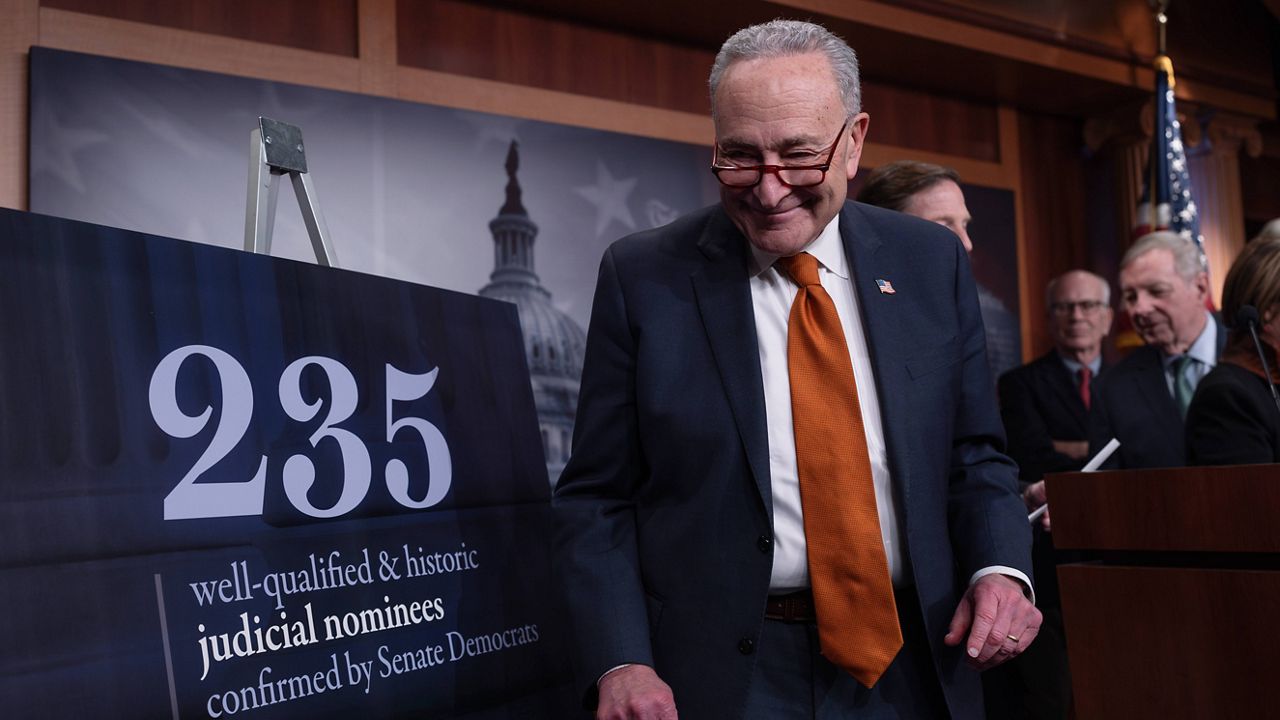TALLAHASSEE, Fla. — A Leon County judge is expected to decide by Friday whether he has the authority to order the Florida Department of Economic Opportunity to restore extended federal unemployment benefits.
What You Need To Know
- A lawsuit seeking to reinstate federal unemployment benefits in Florida is expected to be decided by the end of the week
- Benefits provided an extra $300 a week in federal money for the unemployed
- Plaintiffs argue that Florida must use any and all unemployment resources
- The state contends state law doesn't require participation in the federal CARES Act program
Florida is one of 26 states that cut off the $300 weekly extended federal unemployment payments as part of the Federal Pandemic Unemployment Compensation program (FPUC). Two other federal programs remain in effect until Sept. 4.
A half dozen individuals represented in the lawsuit filed against the state testified Wednesday.
Only two of the individuals who testified have found a new job since the lawsuit was filed, after all told the court they were laid off in 2020 due to the pandemic.
Lori Ertel is a 50-year-old self-employed office manager. She testified she has since struggled to pay bills and find new work.
When she applied at McDonald’s, Ertel said she was “laughed at” by restaurant managers.
“I was told I’m overqualified and they wouldn’t hire me because by the time they got me trained and I started working, I’d probably find something that fit my qualifications better,” Ertel said.
Others testified they’ve applied for 100 to 250 jobs since being laid off with no luck.
They represent the thousands of Floridians who say they are still struggling to find work to make end’s meet, and are struggling to survive.
The plaintiffs include people from a variety of industries. Paralegals, self-employed, customer service, and others.
“I’m petrified I’m going to be evicted from my apartment,” Gia Cuccaro told the court through tears. “This is the apartment my mother lived in before she passed away. My daughter also passed away and lived here with me. I don’t want to leave this apartment and that is the scariest thought I have right now.
"The money from the $300 was just making ends meet. I wasn’t getting rich off of it, but was able to keep a roof over my head.”
Since March 2020, more than 2.5 million Floridians have been deemed eligible for unemployment benefits, ranging from state funds to federal funds.
Florida’s state unemployment trust fund is funded by taxes employers pay, where as the federal programs are funded by the federal government and approved by Congress.
State leaders cut off the benefits arguing it was incentivizing people not to work. There were predictions that it would lead to a mass return to the workforce.
Florida’s July unemployment rate, however, ticked up slightly to 5.1%.
Data also suggests states cutting off federal benefits has little impact on shrinking the unemployment rate.
Despite the dire straits many may face, Judge Layne Smith said the case is strictly about the letter of the law.
“FPUC is not a state program, it’s rather a federal program, so it’s not something established by the Legislature," Smith said. "So what we’re looking at is whether the law provides the executive with discretion to exercise, which is the defense’s position, or not, which is the plaintiff’s position."
Attorneys Marie Mattox, Gautier Kitchen and Scott Behren argued that state law is clear in requiring the Florida Department of Economic Opportunity to provide any and all unemployment resources.
“In administration of this chapter, Florida Department of Economic Opportunity and the tax collection service provider shall cooperate with the United States Department of Labor to the full extent,” Mattox said, reciting state law. “It says shall, not may.”
Attorneys representing the state, Florida DEO, and Gov. Ron DeSantis disagreed.
“The plaintiffs are not trying to preserve the status quo with this preliminary injunction, they’re trying to alter the status quo,” attorney Daniel Nordby said. “Quite simply, Florida law does not require participation in the CARES Act program that were enacted by Congress.”
The state argued distributing federal unemployment benefits is a courtesy, not a mandate; plaintiff attorneys argued the statute says the state must make available all resources, no matter the source.
The injunction and case Smith is considering is whether to order DEO to retroactively restore FPUC benefits to all impacted Floridians from late June until Sept. 4 when the program is set to expire.
Mattox estimates the ruling could impact at least 150,000 Floridians.
Florida DEO Chief Financial Officer William Currie testified Wednesday that without an agreement in place presently, the agency does not have the ability to provide retroactive benefits.
The state ended it’s agreement with U.S. Department of Labor in late June. Asked whether the agency could retroactive pay benefits for July and August, Currie said it would not be possible.
“No, the state would not be able to pay for any weeks for which an agreement was not in place between Florida and U.S. DOL,” he said.
Plaintiff attorneys contended they can in fact still pay eligible claimants retroactively.
The Biden administration previously said that states would be able to take advantage of federal funds to provide benefits, even if they had cut off the unemployment programs.
More recently, the Biden administration is expected to allow the final federal unemployment programs to expire Sept. 4 (in Florida, Sept. 6 nationally). It’s estimated more than 9 million people nationally are still receiving the federal unemployment benefits.
Smith is expected to issue a ruling by week’s end.









